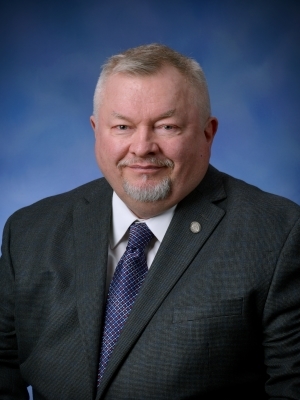Rep. Greg Markkanen | Michigan House Republicans
Rep. Greg Markkanen | Michigan House Republicans
Rep. Greg Markkanen (R-Hancock), gave testimony recently before the House Energy Committee as he advocated for a plan to improve access to clean, affordable energy in the Upper Peninsula.
According to a release from the Michigan House Republicans website, Markkanen testified about the frustrations of the Western U.P. residents he represents over the high cost of energy there when red tape prevents them from generating their own power.
Under House Bill 5145, which Markkanen sponsored, the caps on participation would be completely done away with, and customers would be permitted to participate instead based on interconnection and equipment requirements.
As it stands, power companies operating in Michigan can restrict the number of customers who are permitted to participate in programs that are intended to encourage investment in renewable energy.
Under those programs, customers who generate their own power through an alternative such as solar or wind can receive credit on their energy bills for returning power they generate to the grid. Yet in the western U.P., the 1% quota for Upper Peninsula Power Company (UPPCO) customers was reached almost as soon as the program became available in 2016.
"Our state laws should never take away the freedom of people to invest in clean, renewable energy resources that help the environment and save them money on their energy bills,” Markkanen told Michigan House Republicans. “We must make adjustments now to ensure people can continue participating in solar, wind and other renewable energy programs.”
Even after a settlement with the Michigan Public Service Commission moved the UPPCO limit to 2%, customers are quickly approaching that cap, as well as caps set by other utilities.
“If the cap is reached, it will put a halt to a growing industry and drive jobs out of the Upper Peninsula,” Markkanen said, according to Michigan House Republicans. “The COVID-19 pandemic has already hurt our local economy; we can’t let our state’s energy policies do even more damage.”



 Alerts Sign-up
Alerts Sign-up